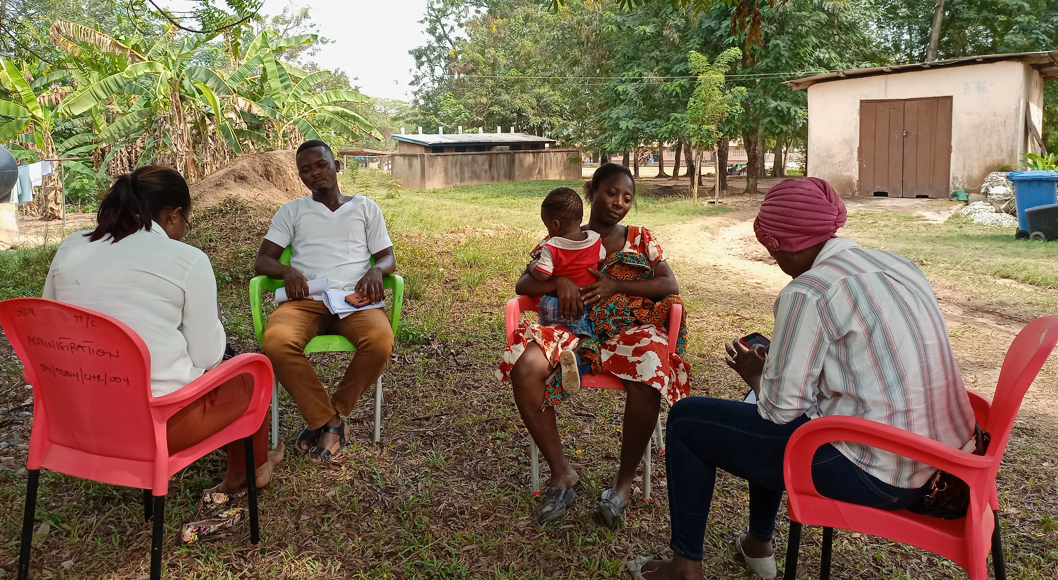In the last two decades, childhood deaths from vaccine-preventable illnesses have significantly decreased due to immunizations. Similar trends have been noted in Ghana following the introduction of the EPI in 1978. Ghana has maintained high immunization coverage rates, estimated between 90-95 percent. However, there are areas of low-performance in districts that are not achieving the recommended three doses of pentavalent vaccine; Diphtheria-Tetanus-Pertussis (DTP), Hepatitis B, and Hemophilus influenzae B (Hib) also referred to as Penta 3.
It is increasingly acknowledged that men and other influential family members such as grandparents can play an important role in reducing barriers to immunization. Involving fathers or other family members to increase awareness of immunization, promote behavior change to support women in decision-making, and play an active role in seeking immunization services can help alleviate barriers at the household level and increase immunization uptake. Addressing gender-related barriers to immunization has the potential to increase
immunization coverage across the population, support accessing hard-to-reach clients, empower women and families to achieve their highest level of health, and improve progress towards goals (e.g., Immunization Agenda 2030, Sustainable Development Goals 2030).
JSI’s Gender Based Intervention Project seeks to understand and increase family engagement in household immunization decision-making. Phase I (Formative Assessment), has been completed, specifically in Kpone Katamanso municipal district in Greater Accra, and provided a baseline understanding of knowledge, attitudes, and practices regarding childhood immunization through a household survey with caregivers and key-informant interviews (KIIs), focus-group discussions (FGDs) and In-depth Interviews (IDIs) with caregivers of children under two years of age; as well as health care workers. Phase II (Development and Implementation of the Intervention), is currently underway to improve immunization-related knowledge, attitudes, and practices; targeting health-seeking behaviors beneficial for routine and COVID-19 immunizations, by engaging mothers, fathers, and other influential family members via HCWs. The JSI team has developed and is delivering tailored engagement strategies and messaging on immunization that emphasize a family-based approach. Phase III (Outcome Evaluation), will be conducted in late 2024 to understand changes associated with the intervention, including in family engagement in immunization decision-making and in knowledge, attitudes, and practice outcomes related to childhood immunization.


